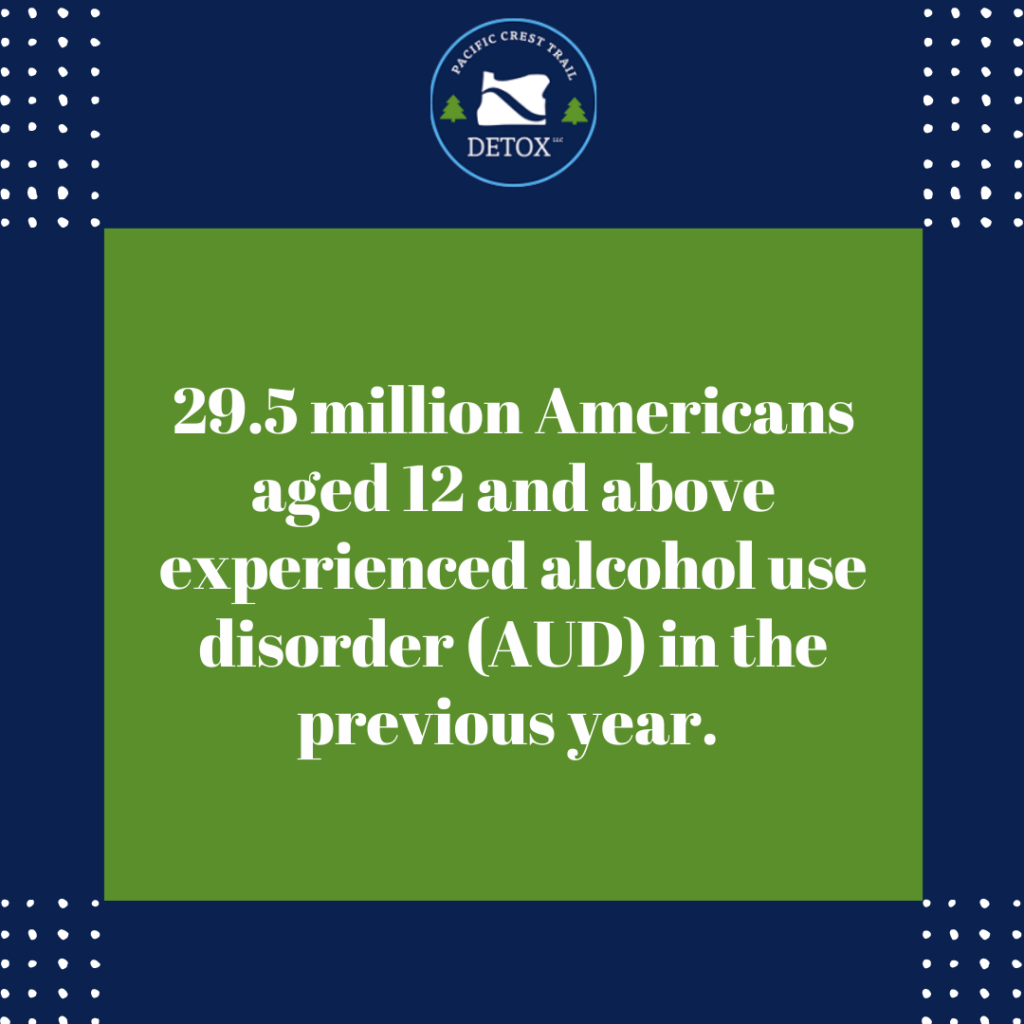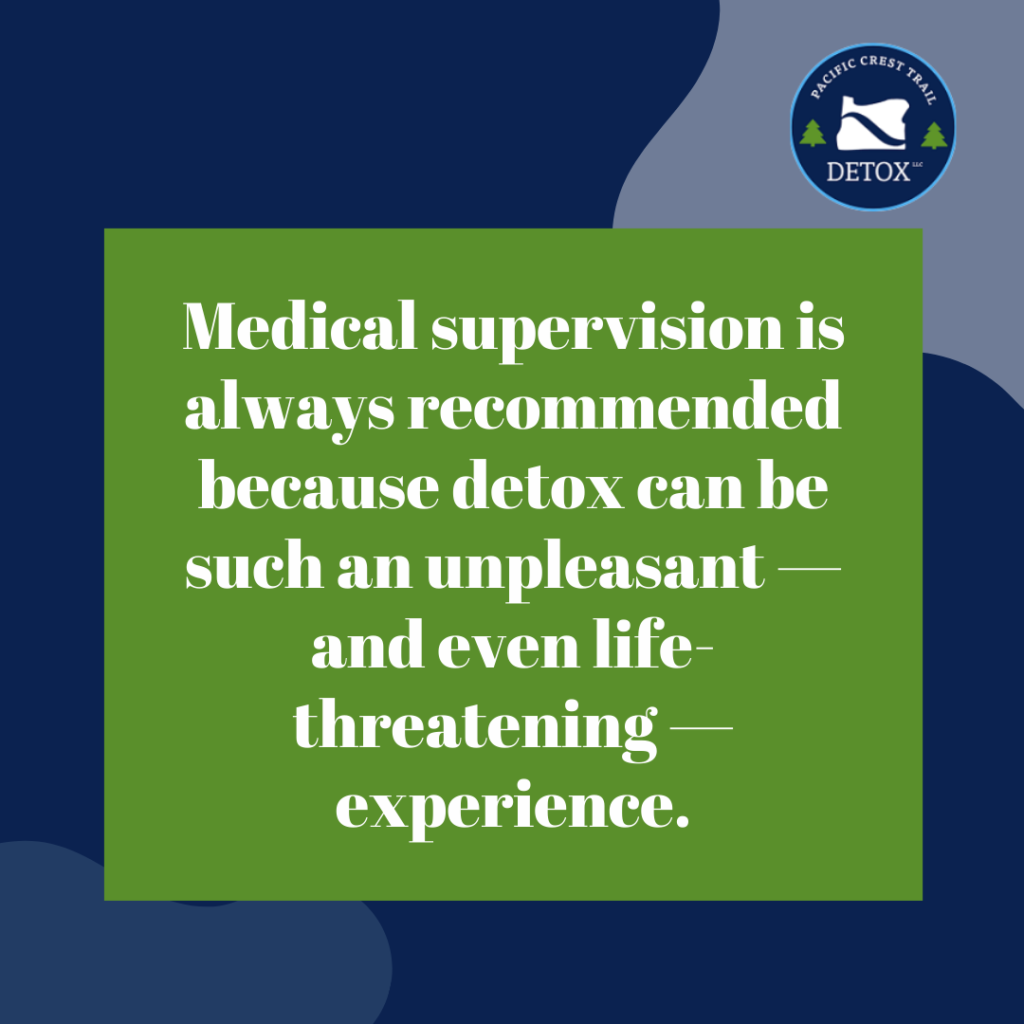Are you battling alcohol abuse? Your journey to recovery might be challenging, but it is necessary so you can regain control of your health and future happiness. You may experience withdrawal symptoms, including what they call “brain fog.” Brain fog from alcohol withdrawal can cloud your cognitive abilities and impact your daily life.
It’s a widely reported but often misunderstood symptom that people like you can encounter when transitioning into living a sober life. In this blog post, we’ll explore this phenomenon and offer advice on how to mitigate it.

Alcohol Withdrawal and How it Affects the Brain
Data from the 2021 National Survey on Drug Use and Health (NSDUH) shows that approximately 29.5 million Americans aged 12 and above experienced alcohol use disorder (AUD) in the previous year.
Alcohol is a solvent that can go directly to the brain through your bloodstream. While stimulating the production of dopamine, it diminishes the effects of glutamate (responsible for alertness and cognitive function). It enhances the effects of gamma-aminobutyric acid or GABA (which produces calming effects).
Prolonged alcohol exposure can lead to brain atrophy or loss of neurons and impact how your brain functions. When you withdraw from alcohol consumption, your brain recalibrates itself. In the process, you may exhibit a range of symptoms, including:
- Insomnia
- Tremors
- Convulsions
- Increased blood pressure
- Increased heart rate
- Elevated body temperature
- Anxiety
- Agitation
- Confusion
- Delusions and vivid hallucinations
Another symptom is brain fog, which refers to a lack of mental clarity. While you may experience brain fog quitting alcohol, know that it’s only a temporary hurdle on your path to recovery.
Understanding Brain Fog from Alcohol Withdrawal
You’ve probably heard it more than once. But what exactly is brain fog? It’s not a condition but a phenomenon where you display symptoms affecting your mental sharpness, causing confusion, impaired concentration, forgetfulness, and other memory issues.
There are various reasons behind brain fog. One of which is alcohol withdrawal.
Chronic alcohol consumption introduces changes to your brain. And when you refrain from drinking alcohol, it takes a toll on this body organ. For instance, cessation can trigger an imbalance in your brain’s chemicals, leading to cognitive disturbances and instability.
Additionally, excessive alcohol drinking causes oxidative stress and cell injury. When your body attempts to repair it, it can temporarily impair how your brain works.
Other accompanying withdrawal symptoms, like irritability, anxiety, and poor sleeping patterns, can further amplify your mental haziness.
The Alcohol Detox Process
Alcohol detoxification, or simply detox, is a process of navigating through alcohol withdrawal.
In this process, your doctor will assess and develop a tailored detox plan. Apart from the cessation of alcohol, you will undergo medical supervision and management to help you cope with withdrawal symptoms better. Medical supervision is always recommended because detox can be such an unpleasant — and even life-threatening — experience.
As your brain and body restore their healthy functioning, these are some withdrawal symptoms you may face at certain stages.
- Stage 1 (6 to 12 hours after you had your last drink). At this point, you will experience symptoms like headache, stomach upset, heart palpitations, increased blood pressure and body temperature, mild anxiety, and brain fog.
- Stage 2 (12 to 48 hours). Your symptoms will intensify, causing you to experience irritability, fever, sweating, and more sleeping problems. You may also find yourself intensely wanting to drink.
- Stage 3 (48 to 72 hours). In this period, you may encounter some of the most dangerous withdrawal symptoms, such as seizures and delirium tremens (marked by anxiety, hallucinations, tremor, and disorientation)
- Stage 4 (3 to 7 days). After your symptoms have climaxed, you may start to feel a sense of relief. You will experience mental fatigue, and the urge to drink alcohol will remain.
- Beyond the first week. Your symptoms may persist, and you may still have intense cravings. Overcoming it and staying sober for one month will let you see your withdrawal symptoms gradually decrease. However, take note that brain fog after alcohol detox is normal. Post-acute symptoms like that, sleeping issues, and anxiety may still exist even in the months after you quit drinking.
This timeline and duration may vary from one person to another. Different factors will impact it, including your age, medical history, and the severity of your AUD (e.g., how frequently or how much you’ve been drinking).
Combating Brain Fog During and After Alcohol Detox
Experiencing brain fog from alcohol withdrawal is part of your recovery journey. To help you combat it, here are some practical tips to follow.
Stay Hydrated
Drinking plenty of water can help mitigate brain fog. Your brain and body require proper hydration to function optimally.
Aim for a Balanced Diet
Load up on vitamins, nutrients, and minerals by consuming a balanced diet. Ditch junk foods and consume more lean proteins, whole grains, and less sugary vegetables and fruits. Take supplements such as magnesium, B vitamins, and omega-3 fatty acids to promote better cognitive abilities.
Get Enough Sleep
Being sleep deprived harms your brain. Conversely, getting adequate restorative sleep can improve overall brain function.
Practice Mindfulness
Apart from engaging in physical activities, you must integrate mindfulness techniques into your routine. Try yoga, deep breathing, walking, and guided meditation to help clear mental haziness.
Get Professional Help
Consult a healthcare professional to get effective guidance on overcoming brain fog and other AUD withdrawal symptoms. Several rehab detox centers are there to provide personalized treatment plans.

The Risks of Alcohol Poisoning
When you go binge drinking, your level of blood alcohol content (BAC) shoots up. And it can reach lethal levels, which can cause the following signs and symptoms:
- Confusion
- Drowsiness
- Loss of consciousness
- Vomiting
- Lack of gag reflex
- Urinary and bowel incontinence
- Significantly lower blood pressure, breathing rate, pulse rate, and body temperature
- Pale skin complexion
- Seizures
- Coma
Death and permanent brain damage are the worst-case scenarios of alcohol poisoning. Anyone who sees someone experience it must immediately seek medical attention.
The Journey to Recovery: Life After Detox
The alcohol detox process is the first step in treating AUD. However, it doesn’t address the patterns and behaviors that prompt alcohol dependency. To help you maintain sobriety, specialists employ comprehensive long-term strategies.
Counseling and therapy deal with your addiction’s psychological and emotional aspects. As you understand your triggers better, you will learn to cope with them more effectively. Meanwhile, structured aftercare and relapse prevention programs offer continuous support as you transition into sobriety.
Depending on your situation, you may also need help with medication management to manage your cravings and any co-occurring mental health problems. But whatever your case is, you can benefit from joining support groups where you can feel a sense of belongingness.
Final Words
Brain fog is just one of the symptoms you will encounter as you break free from alcohol addiction. Fuzzy thinking, along with other physiological and psychological symptoms, can make it challenging for you to recover.
However, help is available. Healthcare experts and specialists offer various treatment approaches like medication management, counseling, and therapy so you can overcome these hurdles, including brain fog from alcohol withdrawal.
If you or someone you know suffers from alcohol use disorder, Pacific Crest Trail Detox is here to offer quality, budget-friendly, and compassionate assistance. Learn more about their detox programs and how they can help you lift that brain fog. Reach out today.


